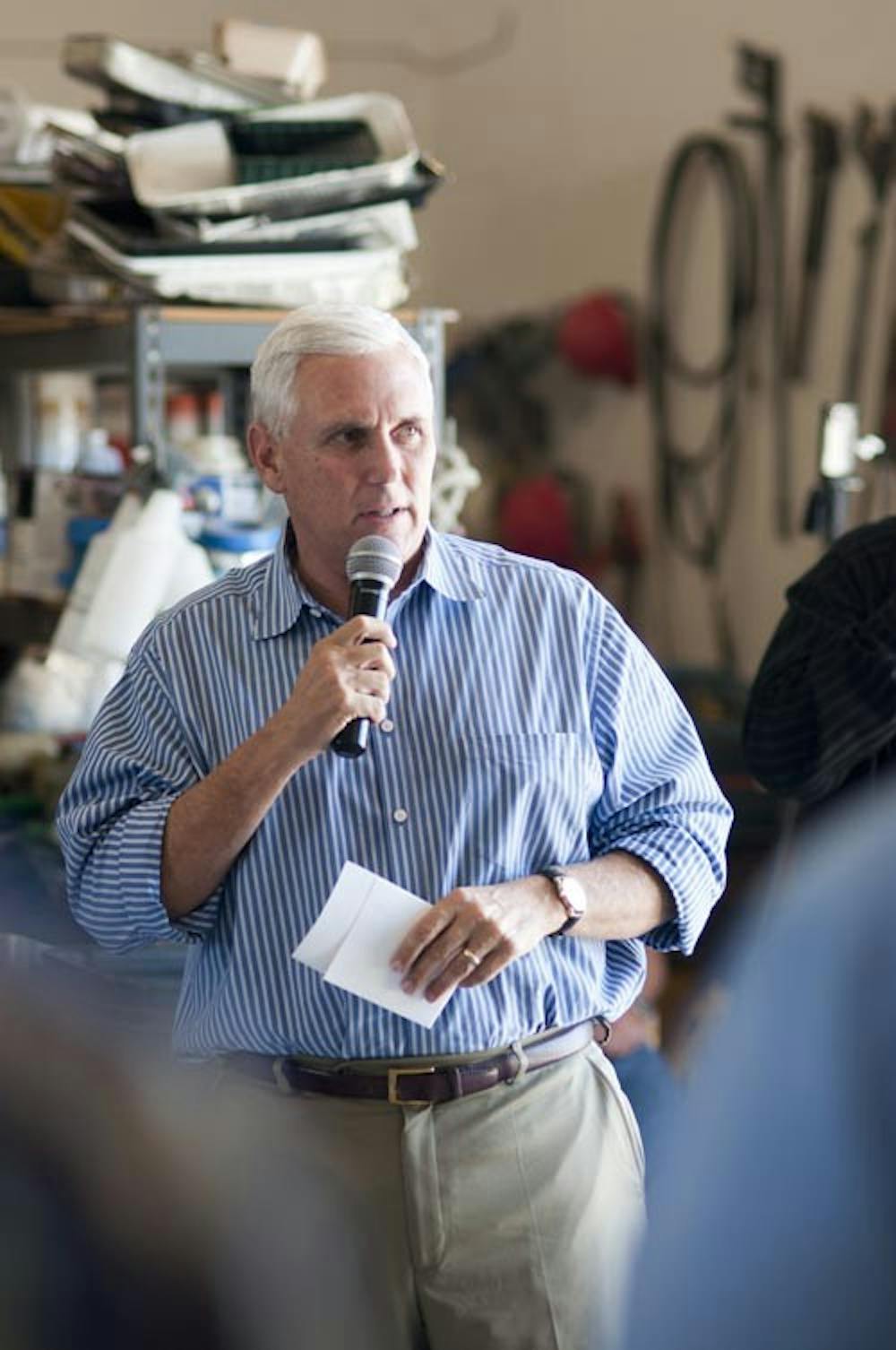DN Reports and The Associated Press
INDIANAPOLIS — It looks like Mike Pence is hanging up his mitts after more than a decade of leading religious conservatives in fights against abortion, gay marriage and President Barack Obama in Washington.
Blasts against Planned Parenthood and comparisons between the Sept. 11 terrorist attacks and the federal health care law are being replaced with tightly scripted ruminations on workforce training and vocational education. The man who said last year that Republicans should “pick a fight” over the government shutdown now says he plans to brief legislative leaders from both parties on his first-year legislative agenda when he becomes Indiana’s 50th governor on Monday.
“Our first priority when I raise my right hand on Jan. 14 is we’re going to make job creation job one,” he said. “We’re going to work with legislators of both political parties to do everything we can to get this economy moving.”
When Pence takes office today, Hoosiers can expect to see a different style of leadership than Gov. Mitch Daniels, said Ray Scheele, Ball State political science professor and co-director of the Bowen Center for Public Affairs.
Scheele said Daniels saw himself as a transformational governor, while Pence wants to keep Indiana moving in the same direction without any major changes.
“Gov. Daniels took some real shots at changing Indiana, and we’ll have to wait and see how many of them actually work,” he said. “He was a change agent, and I don’t think we’re going to see that in Pence.”
The carefully scripted talking points represent a rare opportunity for Pence, who built a reputation as one of the most outspoken social crusaders in the House of Representatives, to redefine himself should he decide to run for president in 2016.
But he’ll have to walk a careful line lest he alienate the evangelicals and tea partyers who urged him to run in 2012 and consider him and Florida Sen. Marco Rubio the top two conservative candidates in the next cycle.
Pence won his seat in 2000, quickly standing out as one of just 33 House Republicans to vote against President George W. Bush’s signature “No Child Left Behind” education policy. He bucked the Republican majority again when he opposed the Medicare prescription drug bill.
By 2005, he had emerged as a clear leader among Congress’ conservatives, taking over as chairman of the Republican Study Committee, a group of conservative House members.
He used that perch to try to scale back congressional earmarks, often clashing with Republican leadership. He outlined a series of cuts he thought could be made to government spending after members of House leadership said it would be difficult to offset the costs of cleaning up Hurricane Katrina through spending cuts.
When the GOP took heavy losses in 2006 midterm elections, losing control of the House, Pence ran a quixotic campaign for the top spot in leadership, portraying himself as a true conservative. He fell well short — netting 38 votes to John Boehner’s 168. But two years later, he ran unopposed, and with Boehner’s tacit blessing, for the fourth spot in House Republican leadership, the chairman of the Republican Conference.
Even in leadership, Pence continued to promote conservative ideas in fiscal and foreign policy. He was an outspoken opponent of the financial bailout and the auto bailout, despite its impact on Indiana’s auto industry. After Republicans retook the House in 2010, he announced he would be resigning his spot in leadership.
A year later, he announced his bid for governor.
On his return to Indiana, Pence abandoned all talk of his congressional career. He also ditched talk about religion on the advice of top Indiana Republicans, who held a call with Pence shortly after he announced he would run for governor, according to a participant on the call who requested anonymity because it was a private discussion.
“I think I heard him say ‘God’ once after that,” the participant said.
Pence stuck to his campaign “roadmap” for Indiana, which focused on jobs and education, even as Democrats argued he was a religious wolf campaigning in a fiscal conservative’s clothing.
Some of Pence’s positions and plans for the state are not well-supported, according to the 2012 Hoosier Survey conducted by Ball State and WISH-TV.
While campaigning, Pence proposed a 10 percent cut in personal income taxes. The survey found that 31 percent of Hoosiers agreed with the plan, while 64 percent would rather see more investment in jobs and education.
Drew Farrington, University Democrats president, said he agrees with the 64 percent of Hoosiers.
“I think a tax cut like that will take money out of organizations we do need funding for,” the senior telecommunications sales and promoting major said.
John Huston, College Republicans treasurer, said he thinks Pence should listen to Hoosiers.
“[The tax cut] will not have a substantial effect on our paycheck, but it will have detrimental effects on funding,” the junior political science and economics major said.
Despite Pence’s effort to publicly shuffle social issues to the backburner, leaders of Indiana’s religious conservative groups aren’t worried they’ll be shunned like they were by Daniels, who argued social issues would derail his economic agenda.
Micah Clark, executive director of the American Family Association of Indiana, notes that Pence’s roadmap includes a promise to promote marriage as a means for ending childhood poverty. Pence told The Associated Press before the election that benefit can only be derived from marriages between one man and one woman.
Clark said he is confident Pence won’t have to trade social issues to take on other priorities.
“I think Republicans can walk and chew gum at the same time,” he said.


